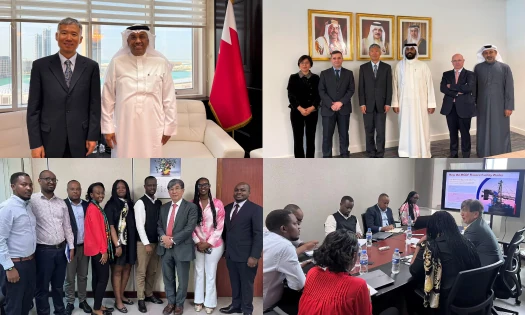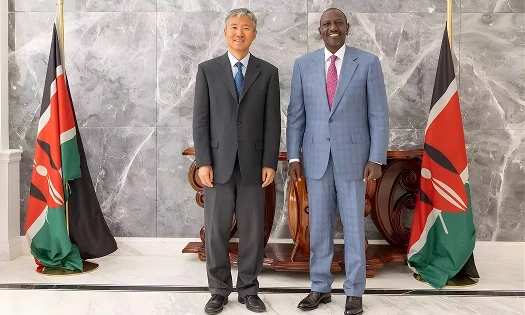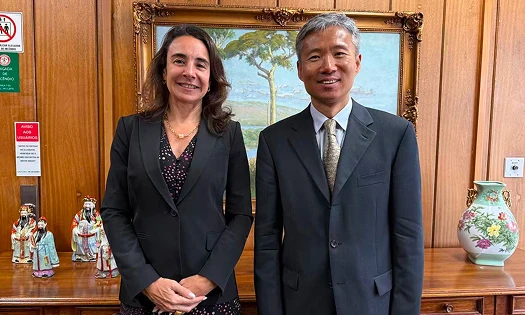New technologies and financing approaches for enhancing renewable energy storage were examined during the third and final workshop of the innovations in renewable energy technology and connectivity series on 2 June, cohosted by the Multilateral Cooperation Center for Development Finance (MCDF).
The other organizers of the three-part virtual series were Saudi Arabia’s Ministry of Finance, the Islamic Development Bank (IsDB), and the Asian Development Bank (ADB).
The third workshop of the series featured presentations by experts from government, multilateral development banks (MDBs), and partner organizations. Leading off was Dr. Ede Ijjasz, Senior Advisor to MCDF’s CEO and the workshop’s moderator and strategic lead, who overviewed energy storage trends.
Dr. Ijjasz explained how the location specification of pumped-storage hydropower limits its growth and is raising the importance of other storage technologies, such as batteries, compressed air, gravity storage, and hydrogen. He went on to discuss energy storage market leaders, including China, Europe, and Saudi Arabia, and swings in the cost of batteries that use lithium and other key minerals.
To watch the workshop’s overview presentation on energy storage trends, click here
To see the full session and related materials, visit MCDF’s digital platform, JIGSAW
Dr. Xiaoping Wang, Senior Energy Specialist at the World Bank’s Energy Sector Management Assistance Program (ESMAP), discussed ESMAP’s objectives and said that it has invested over USD4 billion in more than 40 countries, supporting over six gigawatts of capacity. She presented related case studies from China, India, and Uzbekistan. She also described the Mission 300 initiative, a partnership between the World Bank and the African Development Bank, which seeks to provide electricity access to 300 million people in Sub-Saharan Africa by promoting renewable energy combined with storage as a least-cost solution.
Trends in China’s energy storage technology were presented by Dr. Xiangjun Li, Director of the China Electric Power Research Institute’s Energy Storage Department. He noted the storage growth and market factors raising the cost of standard pumped water storage, as well as the rise of lithium-ion battery energy storage installations. He then discussed the development status and outlook for frontier storage technologies, such as sodium-ion batteries, vanadium-flow batteries, and compressed air energy storage.
Dr. Ashraf Khadam, Senior Global Energy Specialist at IsDB, presented a case study on the IsDB-supported El Menzel pumped water storage project in Morocco which underscored energy storage’s importance for achieving the country’s 52% renewable energy target by 2030 and maintaining system operations. He also highlighted the need to conduct climate change resilience assessments to mitigate project risks in the design of similar projects.
Mr. Atsumasa Sakai, Senior Energy Specialist at ADB, spotlighted an ADB-funded lithium-ion battery storage project in Mongolia that will raise the capacity of new solar and wind energy plants needed to receive grid connections and help the country realize its renewable energy growth potential. He discussed the project’s operational risks and the procurement document's focus on performance requirements. He also described the ADB-led ENABLE platform that brings together financiers to accelerate the deployment of battery energy storage systems in Asia and the Pacific.
The workshop concluded with a case study on renewable energy and energy storage in Saudi Arabia presented by Mr. Osamah Abdulmana Alhamadi, Director of the Project Management Office of the Renewable Energy Deputyship at Saudi Arabia’s Energy Ministry. He described the country’s National Renewable Energy Program target of 48 gigawatt hours (GWh) of storage capacity by 2030 and how it has already achieved 30 GWh, making Saudi Arabia a top 10 global battery storage market.
Mr. Alhamadi also described Saudi Arabia’s flagship Bisha Batter Energy Storage System project, one of the largest utility-scale storage projects globally. He said it was completed in only 11 months, at the end of 2024, with 2,000 megawatt hour capacity supported by 488 advanced battery containers.
Contact
David Hendrickson
Senior Communications Officer
Mobile: +86 185 0114 6758
david.hendrickson@themcdf.org







